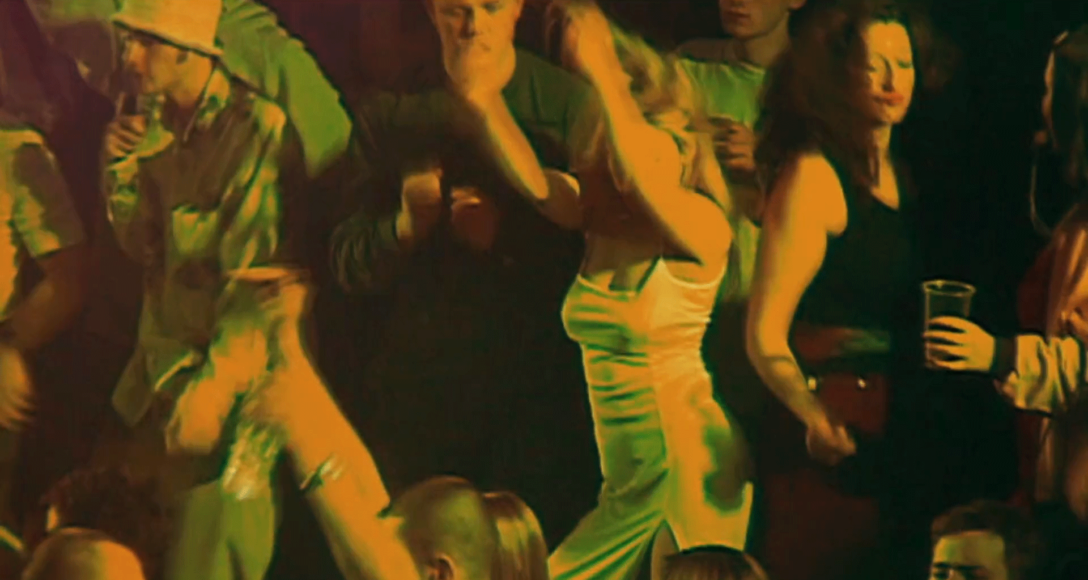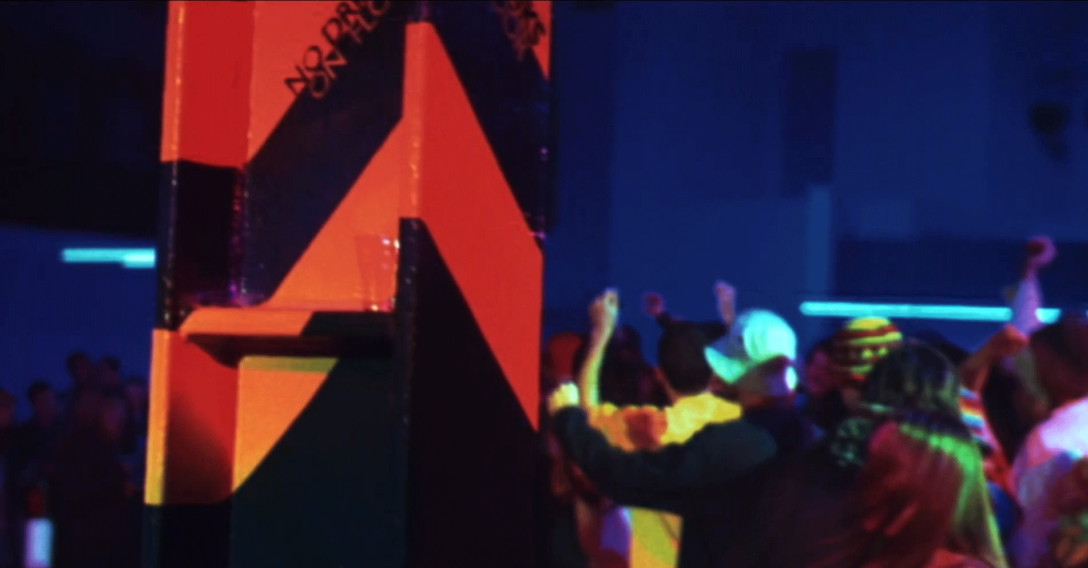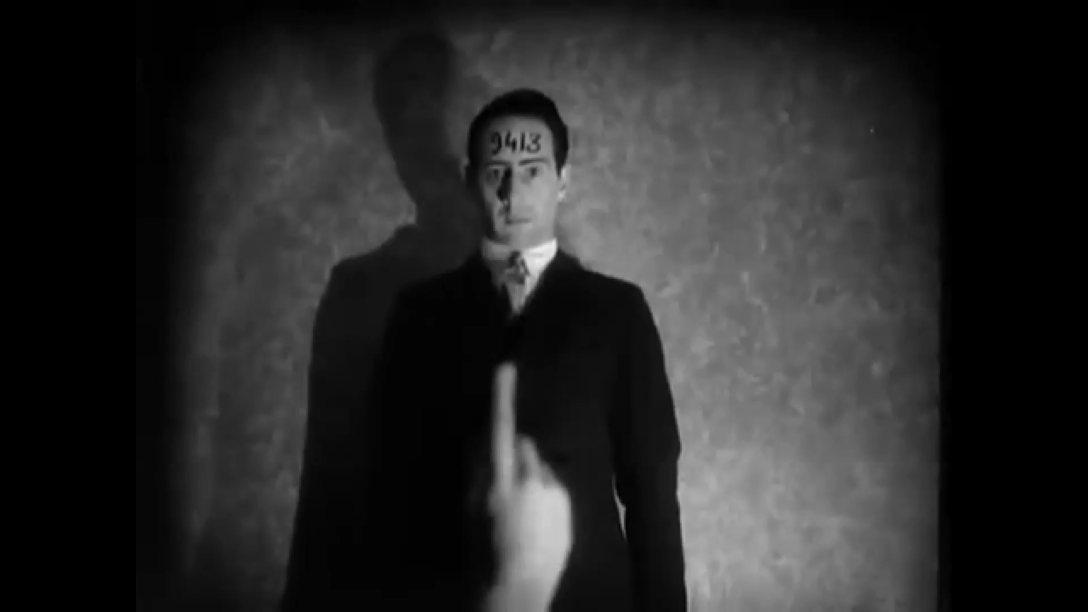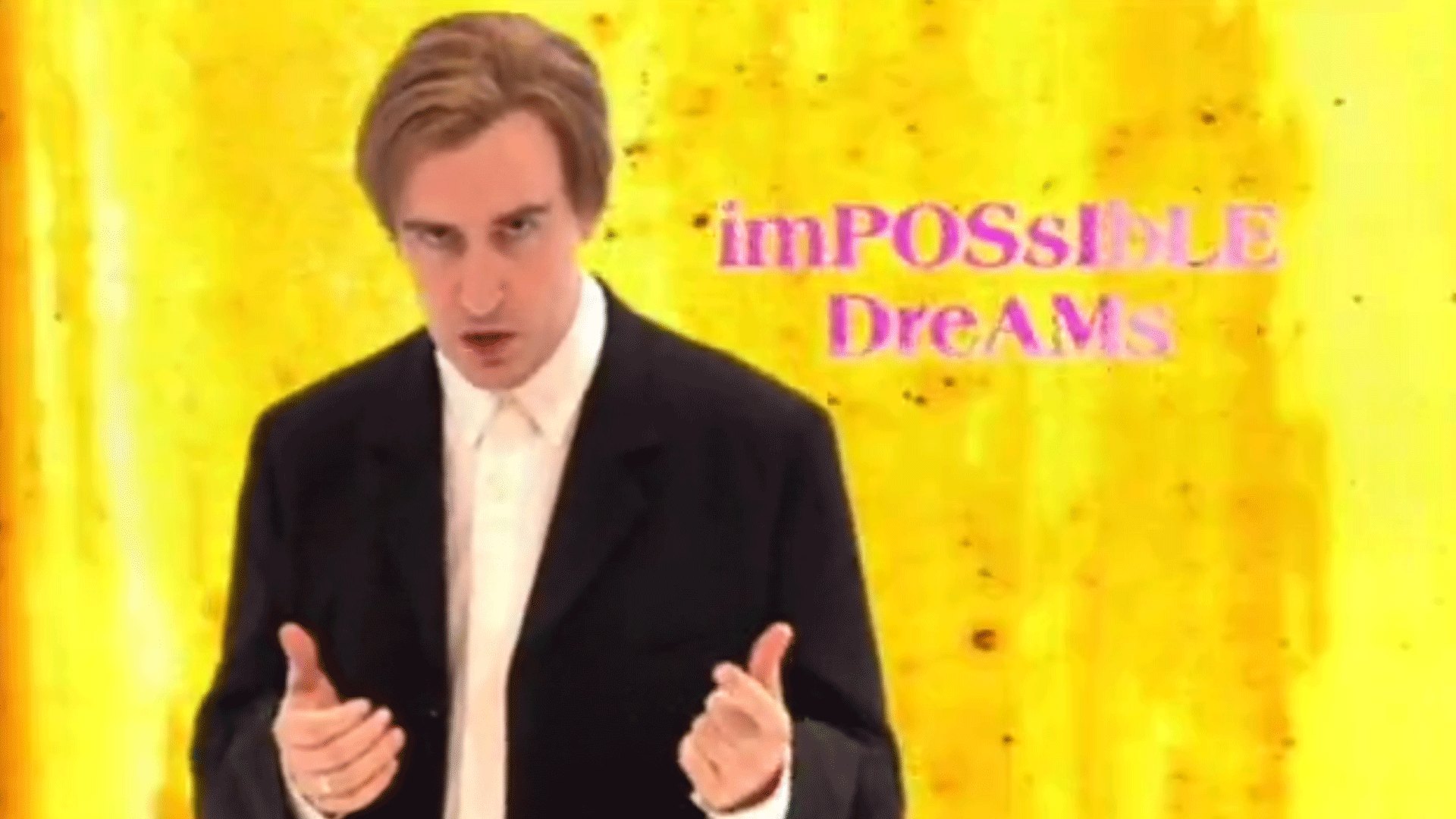They’re not called “extras” anymore. That’s the first thing you learn on set, from people who have been doing it longer than you. “Background actors. Background work.” We had been told to bring out most “authentic” going-out looks, for filming a club scene. We’d been told to show up at the garage on Hollywood and Orange. There was some confusion about this when we arrived.
“Is there supposed to be a shuttle or something?” I asked the one other person who looked as lost as myself, a young guy in plaid.
“I guess so?”
Others started to show. Eventually, a bus. We all piled in. We would be carted in groups of 20-30 to the set, which was up the freeway a few miles but still in Hollywood proper.
We arrived at holding, which was a wide, shadeless expanse of white rocks between a large recreation building and a row of porta-potties with stairs leading up to them.
When you’re on the dance floor being filmed, sweating soberly and grinding in complete silence, the words piped through the air are, “great work, background!” We were, quite literally, the scenery: a matte painting against which the actors project the drama. And the actors were beautiful. One of them was even trans, like me. This was supposed to be a queer club, a queer show. But from what I could make out, only the talent was queer. Everybody else, with the exception of the female PA, was white, male, and somewhere in their upper 40s.
The director was older. His style of directing was to insist, “That’s good, more. More. I know you have it in you.” The actors didn’t respond well to this, because what the fuck does “more” mean?
 '24 Hour Party People' screenshot: Vimeo
'24 Hour Party People' screenshot: VimeoIn a sense, I’ve been lucky in L.A.; for a few years I was able to fall into enough gigs and squeak by on cheap rent. That changed in early 2019, when I had to move out of my studio apartment due to construction. My one-room studio, complete with bed, desk, shower and toilet, had set me back $900. When I had to move, I impulsively chose a place which, at $1900 a month, set me up with a standard of living that I could not but fail to sustain. I figured, somehow, that it wouldn’t be a big deal. I’d found and lost so many jobs in L.A. What could go wrong so long as Craigslist exists?
By early April, I was panicking. Rent had eaten into my tiny savings and I was already struggling to pay off my credit cards. I’d always been good about money, but something was changing. I was learning about what happens when you have to pay for the convenience of not thinking about where you live and how you live too deeply.
It was a two-day shoot, what they refer to as a cattle call. There were hundreds of us. We lined up in the morning heat as stylists assessed our camera-readiness with lightning speed. As I stood in line, a white woman panned past us, touching the hair of some people in line, several of whom were Black women. The two women in front of me, startled by this, tried to flag down somebody Black to make sure they didn’t have to be re-styled for not looking a certain way. Moments later, a tall, visibly queer Black man came by to set things right. A wave of relief ran through us.
On breaks, when we were back in holding, the girls in their stilettos could be seen hobbling across the rocks to pee. We were served hamburgers and tacos and snack packs of pretzels.
This was a set, we’d been assured, where there would be no racism or transphobia. There was a trans consultant on set that day, and because Hollywood is small and because my life is weird, he happened to be someone I knew. I’d done a story on him for a magazine; my cis male editor, who had pushed for the interview, had kept insisting that it was “so crazy” that a trans guy could be “that hot” and could be leading a normal, successful life.
 '24 Hour Party People', screenshot: Vimeo
'24 Hour Party People', screenshot: Vimeo“It’s not going to work,” another extra said, as we sat cross-legged on the floor during a break. “She’s not confident and he’s not helping.”
“Well she’s a model, right?” said someone else. “Not an actress.”
It was true, the director was treating the trans actor like a prop. I see this on a lot of shows, where visibly queer background characters are there to provide the “outrageous” look and feel of the queer lifestyle, contrasted against the prim and proper leads who, if they are exploring their sexuality, are doing it against the glittery backdrop of other people’s spiked hair and gimp wear. Hence the beautiful trans girl wearing glow-in-the-dark mascara, contending with the problem of being cast in the role of “manic pixie dreams trans.”
After the fifth take of “more, you can do it,” we broke. Outside it was fry-an-egg-on-the-sidewalk hot, despite being late April, and we were in a black box that couldn’t be air-conditioned because that fucks with the sound too much. We’d been dancing all day and the day before, too. 12-hour days that extended into the wee small hours, until at last I tumbled back into my expensive apartment so that my dog, angry at being abandoned all day, could harass me while I ate my dinner out of a can over the sink. I thought, “I could live this life.”
Before moving to LA, I thought I had confidence. I didn’t. I’ve worked at magazines and newspapers and in “media.” I’ve worked with and around and because of those transient, mystical objects we call celebrities.
A lot of people who work in media just want to hang out with “celebrities.” They don’t want to write a masterpiece of a profile, or get to the bottom of why that actor doesn’t just come out already. They just want to say they’ve been to Matt Bomer’s house or whatever. There’s a certain kind of person in New York, in LA, that believes celebrities are not only better than everyone else, but also realer than everyone else.
Maybe they are beautiful with radiant skin, they weigh 96 pounds and can eat anything, wear clothes the rest of us can’t even touch. Maybe they are Lee Pace, or Timothée Chalamet, maybe they are Dakota Johnson or Lady Gaga. Even if so, famous people are famous because of their own series of accidents.
This is how the sausage is made. Dancing to no music, hearing the squeak of sneakers on the dance floor, smelling everybody’s B.O. This is the process whereby I, a person who has never so much as entered an actual club, now gets to act like it was my natural habitat. Or so I thought as I sat on the floor of the black box once our break ended, evaluating my bruised knees. Grinding for 12 hours to make an extra $250–this was not Hollywood glamour. This was becoming part of the sausage. I was the meat that was parsed and separated so that the different parts of the animal become meaningless, all part of the same, satisfying, salty tube.
Hollywood has already created a version of transness that the broader world finds somewhat acceptable. But these trans people don’t look like me, and they don’t feel like me. They’re growing up in a world where they can be out in high school and transition early enough to not lose years of their life and fuck who they want and be what they want, and I’m a little too late for that. I’m a little too old, too messy, for the glittery version of my own life Hollywood is trying to sell back to me.
A few months after my background gig ended I was working at a supermarket, hoisting hot pans of whole chickens above my head of an afternoon, the boiling grease threatening to spill over onto my shoulders. I got a phone call from my parents telling me my friend from high school was dead. I didn’t know her very well, but she was the only other trans person to graduate with me. We both came out much later, and when she was coming out I was excited. I’d seen her when I visited New York, the year before. Now she was dead, hit by a truck.
I texted my boss that I couldn’t work there anymore, drove to the nearest coffee shop, and told my wild-eyed story to the people at the counter, who must have thought I was insane.
“They buy Tyson chickens for 99 cents and sell them for $8.99!” I shouted. “Sell them as organic!“
I packed up my shit, cobbled together the last of my savings to break the lease, and headed home to my parents’ house in Western Massachusetts. I stayed there for eight months, working at a cafe, fighting with my parents, trying to get high in the war zone of my childhood bedroom. Two weeks after my return to LA, COVID hit and I was unemployed again. Floating again.
 Screenshot: Vimeo
Screenshot: VimeoThe summer after graduating high school, I saw a short experimental film from 1928 called The Life and Death of 9413: a Hollywood Extra shot by Gregg Toland, the cinematographer of Citizen Kane. Only two actors made up the cast. The 13-minute silent film is a distillation of the classic cautionary tale: man leaves for Hollywood with stars in his eyes, man ends up part of the crowd, man dies. The pacing is frantic: a shot of a man, marked with holocaust-like letters on his forehead. The cranking of a camera. LA city shots. A gate opens with the word “Success” on it, followed by a shot of a man going up the same flight of stairs but never getting to the top. It’s blunt and obvious like my most vivid dreams, and that’s why I like it.
In my mind, this film is scored by a work similar in theme and tone, The Smiths’ “Death of a Disco Dancer” from the notoriously bizarre final album “Strangeways, Here We Come.” The weird, empty jangling that opens the track, layered beneath Morrissey’s depressed drawl. No, peace is not a common goal.
It’s a weirdly L.A. song for a band that doesn’t really do that sort of thing, with lyrics that don’t fully tell a story but make absolute emotional sense: a Morrissey trademark.By some accounts, this is a song about AIDS, with Morrissey subbing out “disco dancer” for the less acceptable “homosexual.” The problem with this interpretation is that it’s only half there—the lyrics aren’t overly political, and the story it tells is plainly universal: there are a lot of us in this world who simply don’t belong, no matter what. Life may not change or get better and there may be no visible light at the end of the neverending tunnel. Sometimes you just keep driving through the snowstorm and come out the other side. Different, but alive.






